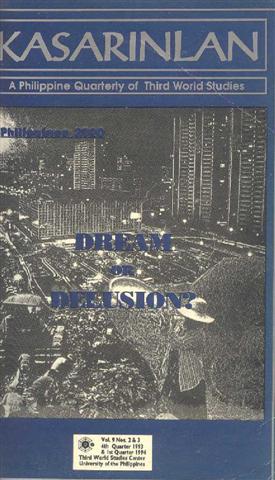Towards a 'Leapfrogging' Strategy for the Philippines
Abstract
This paper seeks to address the issue: can a Third World country such as the Philippines, which is in a hurry to develop and compete globally, take 'shortcuts' by 'leapfrogging' from the agricultural stage to the post-industrial age? It responds in the postive: 'leapfrogging' is feasible and desirable for four reasons, namely 1) less energy-intensive and renewable energy resources, as well as environmentally friendly and less materials-intensive processes, will be utilized for industrialization in the next century; 2) information technologies have become essential to any type of industrialization; 3) latecomer countries with correct policies grow faster than countries that have industrialized earlier; 4) a key to global competitiveness of the Philippines in the next century is to identify human resource- and knowledge-intensive subsectors in the services sector. The paper then proceeds to make recommendations on how the Philippines can "leapfrog" to a post-industrial age, essentializing the process as part-importation from industrialized countries and part innovation at home.
Published
2008-06-10
Section
Features
By submitting a manuscript, the authors agree that the exclusive rights to reproduce and distribute the article have been given to the Third World Studies Center.



